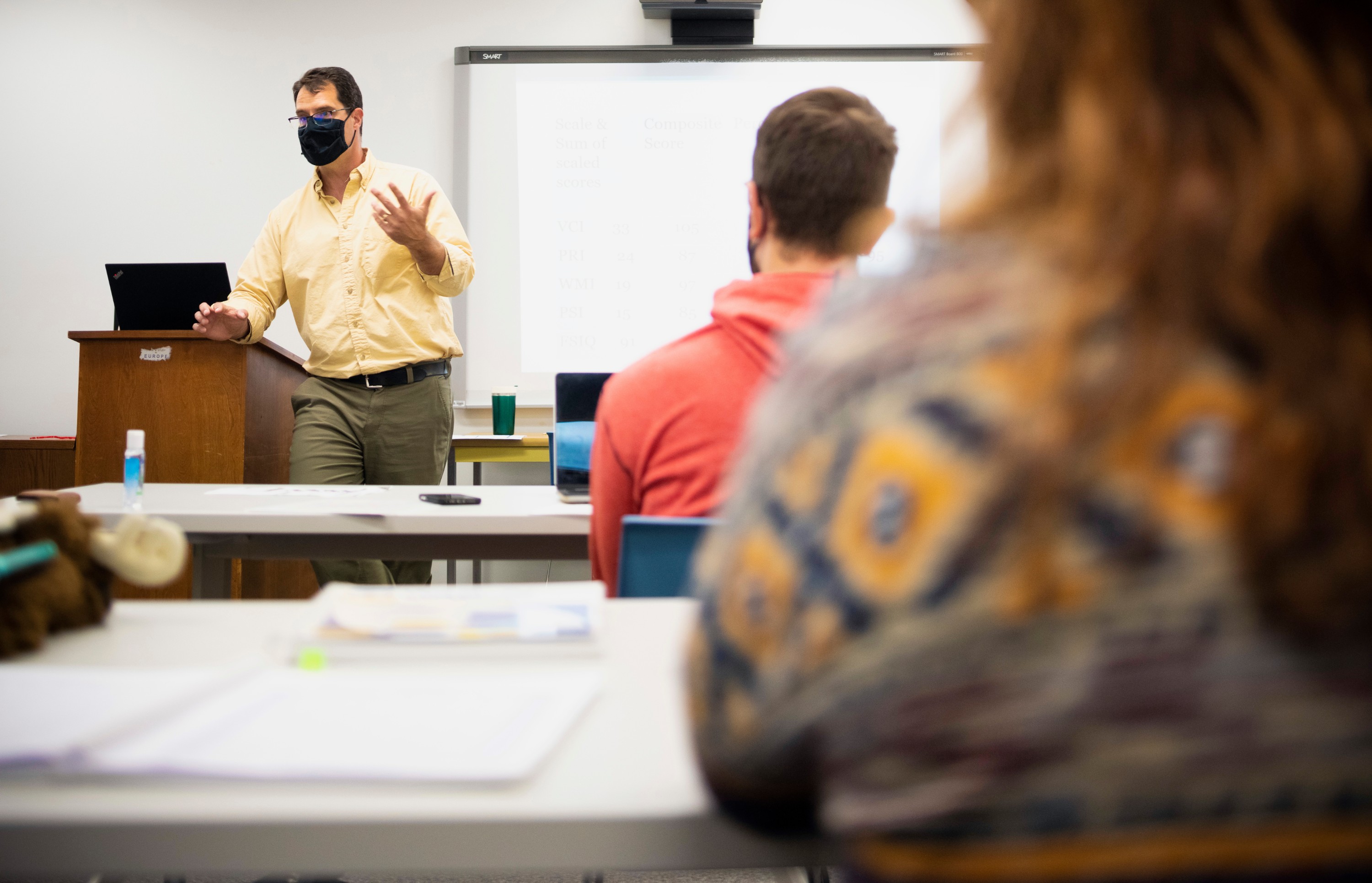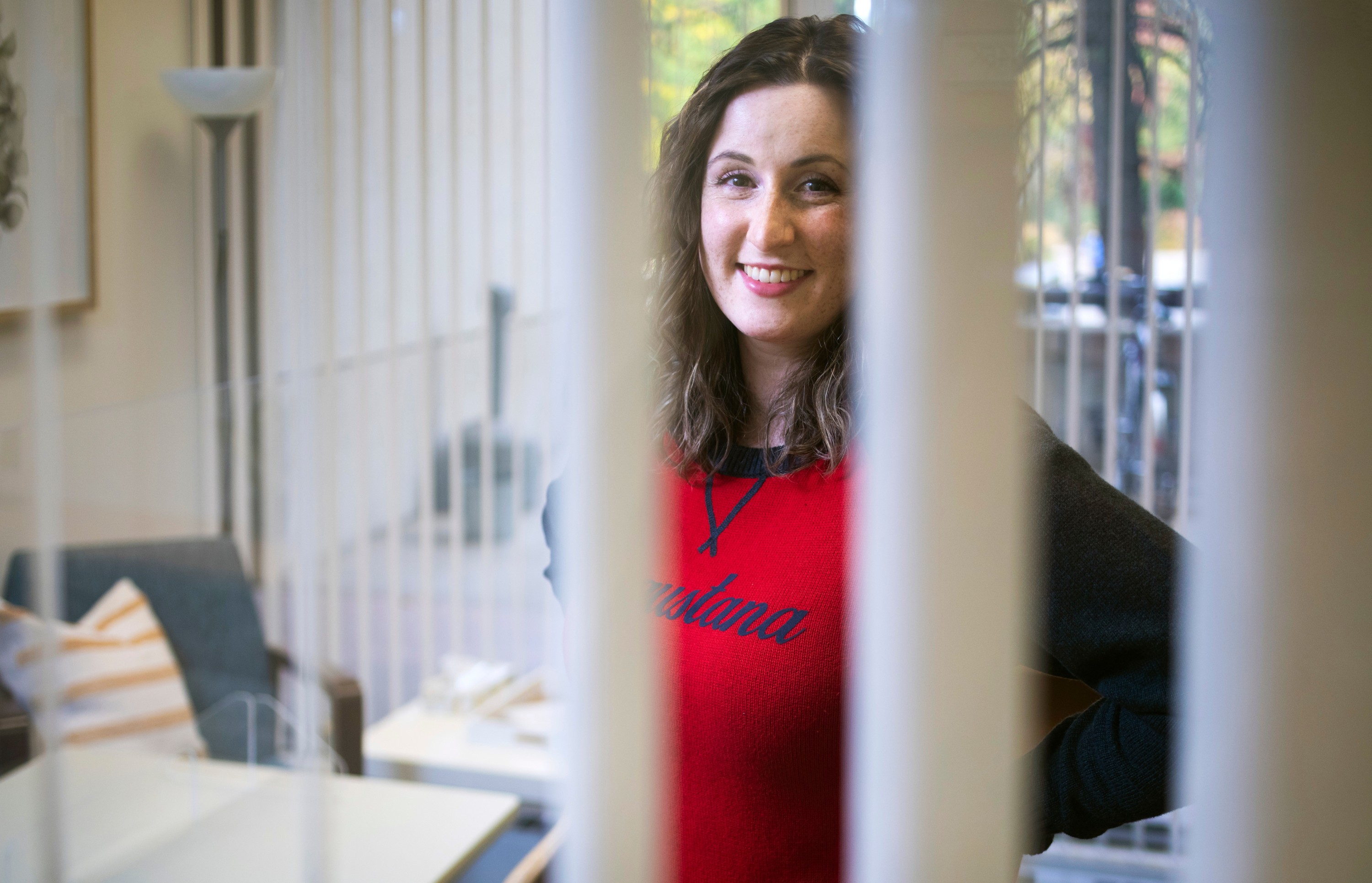It was a scream and a hug in the lobby of a vehicle registry in Camrose, Alta., that showed Larissa Brosinsky the power of positive self-talk.
It was 2015 and the Augustana psychology grad was working with adults living with developmental disabilities — including a woman in her mid-40s who had dreamed for years of learning to drive but was never able to pass the written test to get her learner’s licence.
“She was telling me, ‘Well, I just can't do this. I'm just not capable of doing this,’” Brosinsky recalled. “We talked about how she could speak to herself more kindly — build herself up as opposed to tearing herself down.”
The strategy worked. Brosinsky’s client passed the exam on her next attempt, bursting into tears and startling customers in the process.
“She cried really hard and hugged me. It was such a sweet moment.”
Experiences like this showed Brosinsky that she could coach people to use their own minds to overcome difficulties. She soon enrolled in the counselling psychology master’s program with the University of Alberta’s Faculty of Education. That program, along with the school and clinical child psychology program, admits around two dozen students a year — with students getting hands-on training at Clinical Services. The clinic on the U of A’s North Campus provides low-cost counselling and psychological assessments to the Edmonton community — with all services provided by grad students and supported by faculty members and professional mentors. The clinic was reopened in September for limited in-person counselling and assessments.
Counsellors in urgent demand
As Alberta surpasses a year and a half of the COVID-19 pandemic and the social isolation and economic strains it has wrought, the need for counsellors has perhaps never been greater. A recent study by Alberta researchers found that depression and anxiety symptoms among children and young people around the world have doubled since the pandemic began. And growing client needs led the province last year to forecast that 206 new counsellor positions would need to be created each year till 2023 — an annual increase of 3.4 per cent, almost double the provincial average for all occupations.
“We are facing a mental health emergency and increasing the number of counsellors and mental health providers is vital,” said Rebecca Hudson Breen, co-director of Clinical Services.
Clinical Services helped 250 clients last year — with all sessions provided by graduate students in the faculty’s school and clinical child psychology, and counselling psychology programs. Each student is supported by a team of professors, as well as professional counsellors and psychologists from the community who act as mentors. The model is a win-win: Clients get counselling at around one-quarter the market rate, while students get hundreds of hours of first-hand counselling experience in a supportive learning environment.
“As students, we get three layers of support to improve our counselling education — our classes, our supervisors and our mentors,” Brosinsky said. “It’s amazing.”
Clinic reopened for in-person appointments
Breen and the clinic’s other co-director, Phillip Sevigny, are now looking to future improvements for the clinic — natural light, a larger waiting area with games for children and a space for Indigenous ceremonies. Sevigny said these changes would go a long way to making clients feel even more welcome and safe — which will ultimately improve the educational experience for clinical and counselling students.
“It can be hard to share your innermost struggles with a stranger. If the space is not totally comfortable, a client may choose not to return,” Sevigny said. “That also means our students miss out on the chance to build long-term relationships with clients.”

Brosinsky added that even the experience of navigating the various corridors of the clinic can be overwhelming for some clients.
“I've actually had clients get lost trying to leave to find the bathroom,” she said. “For some people who might experience anxiety, that can be the difference between returning for another appointment or not.”
Lowering client fees to improve student learning
As people in the Edmonton area continue to weather the mental health strain brought on by the pandemic, Hudson Breen said it is vital that Clinical Services remains affordable. That means doing everything possible to lower counselling and assessment fees.
“Although our fees are still well below market rate, they are still out of reach for some clients,” she said.
Increasing the physical space of Clinical Services is also a priority, to accommodate more appointments. Even before fall counselling services reopened, Hudson Breen said there were 65 clients on the waiting list for counselling and 150 children and young adults on the list for psychological assessments — a necessary tool to ensure grade-school and post-secondary students with learning disabilities get the right classroom support. According to the Learning Disabilities Association of Canada, as many as one in 10 children has a learning disability. Clinical Services is one of a handful of facilities in the Edmonton area that offer reduced-rate assessments.
Six years on from helping her client pass that driving test, Brosinsky is on the final stretch of road towards her PhD in counselling psychology. Her studies have allowed her to work with clients with more complex histories and needs, which requires her to be able to build long-term relationships with them.
“If our services are affordable and accessible to clients, they’ll keep coming back — and that will help me become the best counsellor I can be.”
University of Alberta students can access mental health information, support and services. Faculty and staff have access to supports such as the University Employee and Family Assistance Program. Members of the Edmonton community also have access to a variety of mental health supports.
